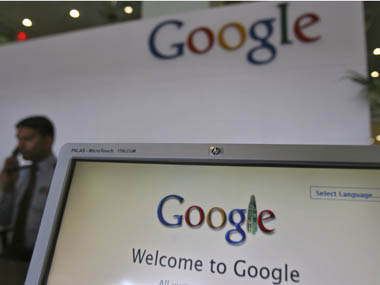London: A cross-party group of British politicians, including MPs and peers of the House of Lords, has concluded that instead of new privacy laws, the UK should force internet companies such as Google, Twitter and Facebook to censor content in order to protect privacy.
Parliament’s Joint Committee on Privacy and Injunctions has concluded that invasions of privacy would not be prevented through a new privacy statute. Instead, it recommended that the government introduce a new law to force Google to block any material that a court has found to invade someone’s privacy. Said the committee:
“Google and other search engines should take steps to ensure that their websites are not used as vehicles to breach the law and should actively develop and use such technology. We recommend that if legislation is necessary to require them to do so it should be introduced.”
[caption id=“attachment_257463” align=“alignleft” width=“380” caption=“Reuters”]  [/caption]
If they failed to do so, the report says, they should be subject to prosecution for civil contempt of court.
In an admission that will undoubtedly lift Kapil Sibal ’s spirits, Google’s Daphne Keller, Associate General Counsel, said that it “might be technically possible to develop algorithms that allow Google to filter” content but that doing so “would not be desirable from a policy point of view, as it would require Google as an intermediary proactively to monitor content on the internet.”
The committee responded that it found Google’s “objections in principle to developing such technology totally unconvincing.”
Google responded in a statement:
“Google already remove specific pages deemed unlawful by the courts. We have a number of simple tools anyone can use to report such content, which we then remove from our index. Requiring search engines to screen the content of their web pages would be like asking phone companies to listen in on every call made across their networks for potentially suspicious activity.”
The report was a little more supportive of Twitter and Facebook, pointing out that legal action has been taken against both services’ users in the past. Unfortunately the report fails to say that the “hoax bomb threat” prosecution (of Paul Chambers) it mentions in passing is widely seen to be a gross miscarriage of justice involving the astonishing overreaction of the Crown Prosecution Service to a joke tweet.
The committee noted that both Twitter and Facebook have co-operated with courts and handed over user data when compelled. They also mentioned Twitter’s new geographically constrained tweet take-down capability. Twitter told the Leveson Inquiry, however, that a complaint about a tweet from a body such as the Press Complaints Commission, which sometimes deals with privacy complaints, would not trigger such a take-down.
It seems that the social networks’ current policies for taking down illegal content was not enough to satisfy the committee. It recommended that high court privacy injunctions should be applied to websites like Twitter and Facebook.
This is almost certain because Twitter, especially, has been instrumental in the breaking of so-called ‘super-injunctions’, in which the reporting even of the existence of the injunction is banned. For example, oil trading company Trafigura obtained a super-injunction in 2009 to ban reporting not just of the allegations that it was dumping toxic waste in the Ivory Coast, but to also ban mention of the injunction itself including a Parliamentary question about the case from MP Paul Farrelly. Twitter users broke the super-injunction by tweeting details of the case.
The report rubber-stamped the UK’s existing privacy laws, instead shifting the onus for privacy onto internet companies whom the committee wants to patrol the internet more closely. Just like Kapil Sibal’s demands for censorship of controversial images, the Joint Committee on Privacy and Injunctions has failed to understand how the internet works: Censor one corner and the information will pop up somewhere else. Prevent Google, Facebook and Twitter from breaking an injunction and all that will happen is that the information will percolate through other means.


)
)
)
)
)
)
)
)
)



